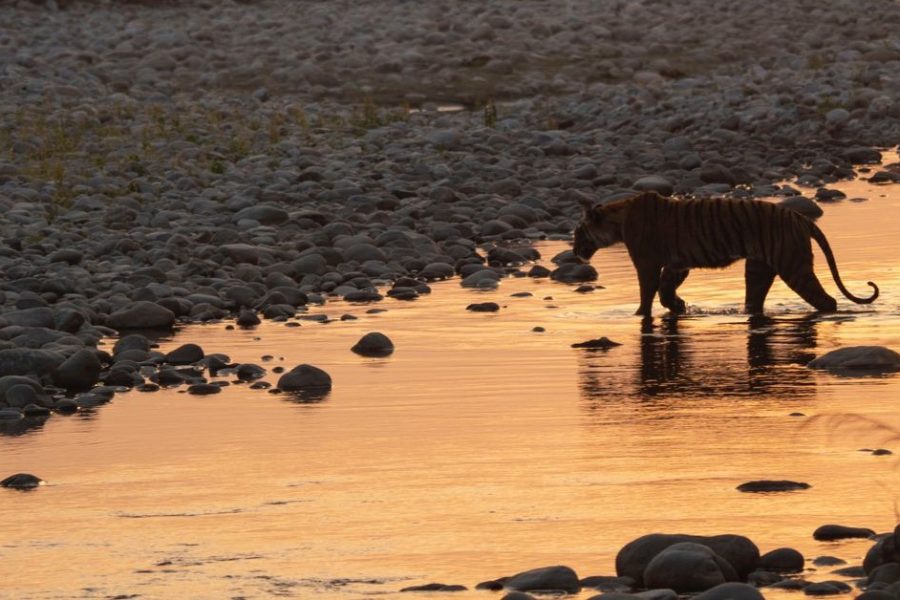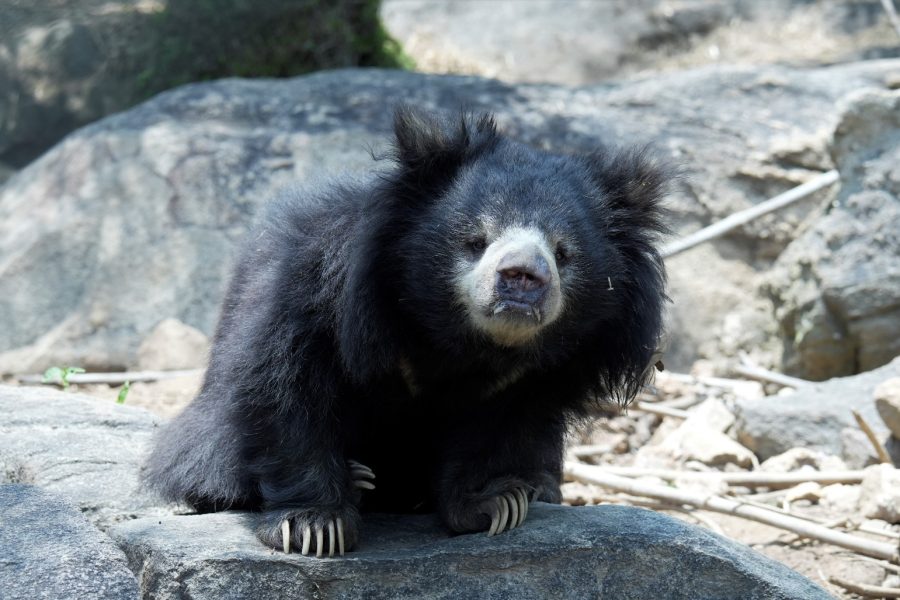Mandya, Karnataka. 20th November 2015. The amusement park is deserted, its muddy grounds drenched in steady rainfall. But for the sound of splashing raindrops, it’s eerily quiet- you’d almost think it was empty.
But, under the cemented awning of a half-built, long-ignored building, four large figures stand, with their heads bobbing monotonously from side to side- the giant shadows of four female elephants, terrified and alone, abandoned much like the fairground they’ve been left in.
Their names are Rupa, Lakshmi, Kumari and Chaya. Aged between 36 and 56 years old, these four elephants have worked alongside each other and a fifth elephant named Chanchal, performing as part of a circus act with the Gemini Circus. The circus has never been kind to its animals, and they’ve been neglected, beaten and starved their whole lives- forced to perform unnatural, painful tricks for fear of a beating with a bullhook. Six months ago, they were headed to Shivamogga when they came to the attention of wildlife authorities who demanded they be retired from the circus immediately. Since then they’d been languishing in the deserted fairground, tight restraints on their legs fixing them to the pillars that hold up their pitiful lodgings. For six months, nothing happened. They lived in the fairground, tied to the same spot for days on end, denied regular access to food, water, exercise and medical treatment. They stood side by side, like they had all those years in the circus.
Then, on 19th November 2015, 51 year old Chanchal collapsed, a lifetime of suffering finally bringing her to the ground. Chanchal never got up again, but her death sparked outrage across the world, and promised a little hope for the four friends that had stood by her all those years.
At Wildlife SOS, we see a lot of pain. Elephants that have been snatched from their families as calves, beaten, abused and starved. But we can never get used to it, it never fails to break our hearts every time we see another animal in pain.
The mounting pressure that followed Chanchal’s death finally got the Wildlife SOS elephant veterinarians access to the four remaining elephants, and what they found waiting for them, in the shadow of a makeshift shelter in the lot, broke their hearts.
Chaya, Lakshmi and Kumari stood quietly to one side, their heads swaying slowly- a phenomenon known as ‘stereotyping’ that follows trauma and intense psychological stress on animals like elephants, commonly seen in abused, captive animals. Rupa was beside herself, the intensity of her sorrow at the death of her companion almost unbearable for the vets. She was swaying her head from side to side, making low rumbling noises and shifting uneasily from one foot to another.
In the wild, elephants live in extremely close-knit families- they eat, sleep, migrate and live as a herd. The loss of a member of the herd is devastating, to say the least, and the remaining members of the herd will gather around their dead friend and mourn his or her passing- a collective grief that helps them slowly overcome the loss they feel.
Chanchal’s body was removed soon after her death, a post-mortem had been ordered to discover the cause of her demise. The elephants of the Gemini circus were her family, and they had just lost one of their own. With no chance to mourn, the elephants had been left in a state of uncontrollable sorrow. Rupa, the closest to Chanchal from the four, had lost her best friend, and then been denied the chance to say goodbye.
Wildlife SOS elephant veterinarian, Dr. Yaduraj inspects the remaining four elephants from as close as the reluctant circus workers allow him to get. Dr. Yaduraj is horrified at the condition of the elephants. Sadly, there isn’t much a vet can do. Years of neglect have left the elephants with severe foot rot and necrosis, abscesses and starved frames, along with psychological wounds aggravated further by Chanchal’s death. These aren’t things he can treat in a single session, these elephants need long term medical treatment and care. With a heavy heart, he completes his examination and whispers a few comforting words to the gentle giants, running a sympathetic hand down Rupa’s swaying trunk.
He gives detailed instructions to the government veterinarian based on what he has observed. Meanwhile, organisations petitioning action for the death of Chanchal file an FIR (First Information Report) against the owners of the Gemini circus, accusing them of animal abuse and cruelty, and the local authorities of negligence.
Dodda Harave. 21st November 2015. The mounting pressure pays off, and the Forest Department orders the shift of Rupa, Chaya, Lakshmi and Kumari to the Dodda Harave elephant camp near the city of Mysore. Dr. Yaduraj reviews the location of the camp, and observes that currently there are no covered areas and no established medical facilities on site. Our veterinary director sends a letter to the Chief Wildlife Warden of Karnataka, offering collaboration and support to provide on-going care to the elephants. A response is awaited. Dr. Yaduraj reiterates his instructions to the vet who will be working with the girls at their new home, and hopes for the best, unable to shake the image of the four miserable elephants he last saw in Mandya.




